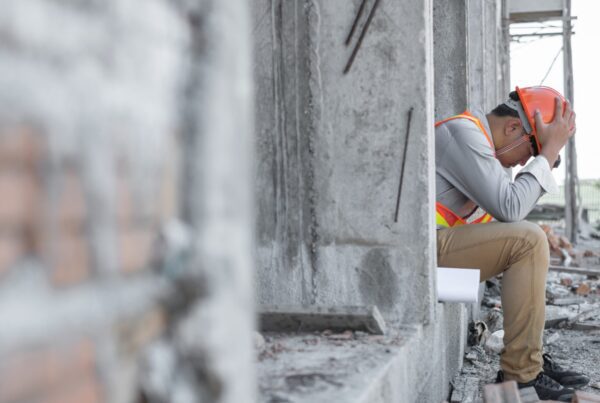You’re driving on a country road and you see a car far ahead go off the road. It turns out a deer ran in front of the car, and the driver swerved to avoid hitting the animal. But now the car is stuck in a ditch, and the young woman driving the car is in a bit of panic.
You stop to help. It looks pretty bleak… one wheel is deep in mud, plus, you’re 30 miles outside of the nearest town. But while you’re pondering the situation, two more cars stop to help. It takes about 30 minutes, but together you figure out a way to get her car out of the ditch.
That’s teamwork.
Except for the original driver, you all saw a need and chose to help. It was entirely your decision, even though two minutes earlier the thought of helping someone else was nowhere in your mind.
You faced a tough problem together. The solution (it’s not important) required focus, ingenuity, and a bit of brute force.
Now imagine that you’re back at work, and a new boss arrives. A week or two later, teamwork posters start popping up. He starts tossing out platitudes at meetings like “let’s all pull together” or “there’s no I in team”.
Groan.
Managers do this with good intentions: they realize that teamwork is both satisfying and productive. But – here’s the rub – you can’t hurry teamwork.
The strongest relationships result when people voluntarily pitch in to solve a problem or capture an opportunity. The bigger the challenge, the stronger the relationships it produces. (This is why couples often fall in love at the end of an action movie, because they just survived 18 attempts on their lives. Pressure builds bonds.)

The wrong way to foster teamwork is through posters and cliches. You can’t build strong teams by telling employees to be good teammates. Sure, you can model the behaviors you wish to foster, by being supportive yourself and being there for others in times of need. (Translation: don’t delegate work that “has” to get done tonight, then go home for dinner.)
The right way to grow strong teams is by identifying interesting challenges and giving your people room to tackle them together. Get out of the way, and be patient. The more they solve a problem together, the more mutual respect will result.





